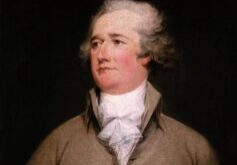Mediating with a Difficult Opponent - Civility Enhances Your Credibility
by Judge Elaine Gordon (ret.)

Elaine Gordon is a retired Superior Court judge and founder of Gordon ADR. She is a member of the National Academy of Distinguished Neutrals and a Distinguished Fellow of the International Academy of Mediators.
A Note from Judge Gordon
Happy Spring...even though the season came a little late!
Thank you so much for the confidence and trust you have placed in me to mediate and arbitrate your cases. Since retiring from the bench more than six years ago, over 900 different lawyers have referred more than 1000 cases for settlement.
It has been a humbling experience and I am very grateful.
I apologize for not always being able to accommodate your need for dates. Please be sure to check the online calendar or call about open dates as early as possible. The calendar is usually full 30-45 days ahead.
The unofficial start of summer begins on Memorial Day. As we enjoy this wonderful holiday with family and friends, please take a moment to remember the sacrifices of so many veterans who made it possible for us to live in this great nation.
A difficult adversary may seem like an impediment to Mediation. After all, if someone is incapable of being civil, what’s the likelihood your Mediation will be productive? I hear this sentiment often from counsel when they tell me that they want to mediate but their opponent is “impossible.”
A few weeks ago, I received a premeditation call from one of the lawyers in a case. He was apprehensive about the Mediation because he and his opponent had a contentious relationship. They simply didn’t like each other. So, I scheduled a conference call ostensibly to discuss the exchange of mediation submissions. But, during that call, I was able to convey much of what you will find in this article.
With the right touch from an experienced mediator, a Mediation provides a new opportunity to engage in a civil negotiation. When lawyers resolve to be professional and rely on the mediator to engage counsel and clients in a realistic discussion of the case, settlement becomes a real possibility.
It is imperative, when there has been a rocky past, to maintain civil discourse from the outset. Remember that both your opponent and his or her client start out with bias toward their own position and an unfavorable view of yours. Don’t make it worse. Exchanged mediation submissions offer a chance for a new beginning if counsel follow some simple ground rules.
Write your Mediation brief without resorting to invective. Don’t criticize the other side’s intentions. Refrain from using inflammatory adjectives. Calling your opponent’s position frivolous will not promote a change in attitude. Worse, it will provoke an in-kind reply.
If, in the past, every discussion has devolved into an exchange of affronts, focus your Mediation submissions on the basics. Discuss liability and damages and emphasize favorable facts and law. With- holding your best evidence rarely makes sense. Cases settle because parties have more information, not less. And just as important, no one likes surprises.
One purpose of Mediation submissions is to convince the other side to compromise. This is your opportunity to make your point directly. Presenting your arguments solidly, and with a strong factual base, is the art of persuasion. Point out the shortcomings of the opposition’s case without resorting to insult.
And when you get to the Mediation, remember that civility enhances your credibility. While mediators are neutral, they are human and will feel the impact of the participants’ behavior which may, in turn, affect the mediation session and its outcome.
When we began the Mediation which I wrote about earlier, the lawyers were very wary but they had both been surprised and impressed by the ‘invective free’ Mediation submissions they had received. They worked hard for their clients and kept their feelings to themselves. In our lawyer-only meetings, they were cautious but professional. By the time we were drafting a term sheet to memorialize the settlement, I even noticed a smile or two. I don’t think they necessarily like each other any more than before, but they had found a way to remain civil, with a little help, for the sake of their clients.
You may also be interested in ...































